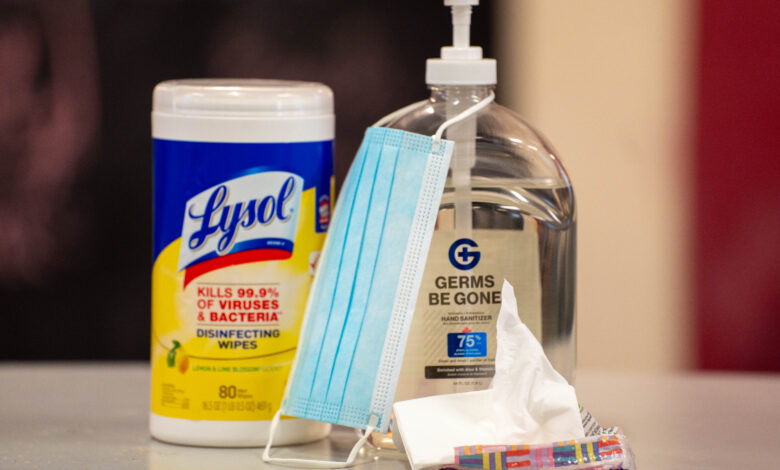
COVID-19 joins back-to-school sickness list
By Amethyst Martinez
Although the coronavirus has fallen off of many people’s radars as vaccines and new scientific research come forward, the virus has seemingly had a hotbed moment at the university, with rehearsal cancellations and students falling ill across campus.
The university, however, said it will continue to treat COVID-19 just as any other respiratory illness, such as a common cold or flu, due to its low mortality rates amongst young adults.
Debbie Stasolla, a cabinet member who was in charge of COVID-19 protocols at the university during the height of the pandemic, said that, although Rider was monitoring the situation closely, there was no plan in action that was working toward steps like mandatory masking or extra booster requirements – a stark contrast from the guidelines during the pandemic.
“We’re trying to get everyone to think in terms of, ‘Treat this like any other illness,’” said Stasolla. “Because right now, it’s not particularly life threatening for younger adults.”
The university has also stopped tracking cases, meaning those who test positive no longer are mandated to notify Rider officials, as they were at the beginning of the pandemic.
According to the university’s website, “As of the 2022-23 academic year, Rider University is no longer facilitating COVID-19 contact tracing or case management.”
Although the university is not keeping an eye on COVID-19 any longer, the student body has noticed an uptick in cases with the start of the new semester.
In one instance, rehearsals for a Rider show entitled “The Prom” were halted last week due to an outbreak in the virus among participating students.
Nicole Duffy, a senior musical theater major who is part of the production, said multiple rehearsals were canceled so that everyone could participate in the first performance in October.
“We’d really like everyone to be healthy, so that everybody can be a part of the production,” said Duffy. “And nobody has to miss out because COVID is going around.”
She also said that, although she knew people who had the virus, it was mostly less severe symptoms mimicking a typical cold season.
Stasolla said, “We want to be smart in particular when it comes to things like rehearsals or practices …where you can spread it a little more easily given the nature of that activity.”
Stasolla also noted that the university, including the Student Health Center, follow Centers for Disease Control and Prevention guidelines, which have loosened up as research advances on the virus.
According to the updated regulations, isolation periods for those with the virus are now required to isolate for five days after testing positive, as opposed to 14 days in 2020 when the virus had unknown characteristics.
Quarantine is also not required at the university after someone has had contact with another who has tested positive, and no contact tracing is being followed.
“The severity of the illness is not such right now that we feel the need to monitor as much as we did in the height of the pandemic,” said Stasolla.
The Student Health Center said it did not see an increase in cases, with only six reported since the beginning of the semester.
Although the center said that it had PCR tests for all students who want to be tested, limited rapid tests were available, and saved for those with symptoms who qualified.


